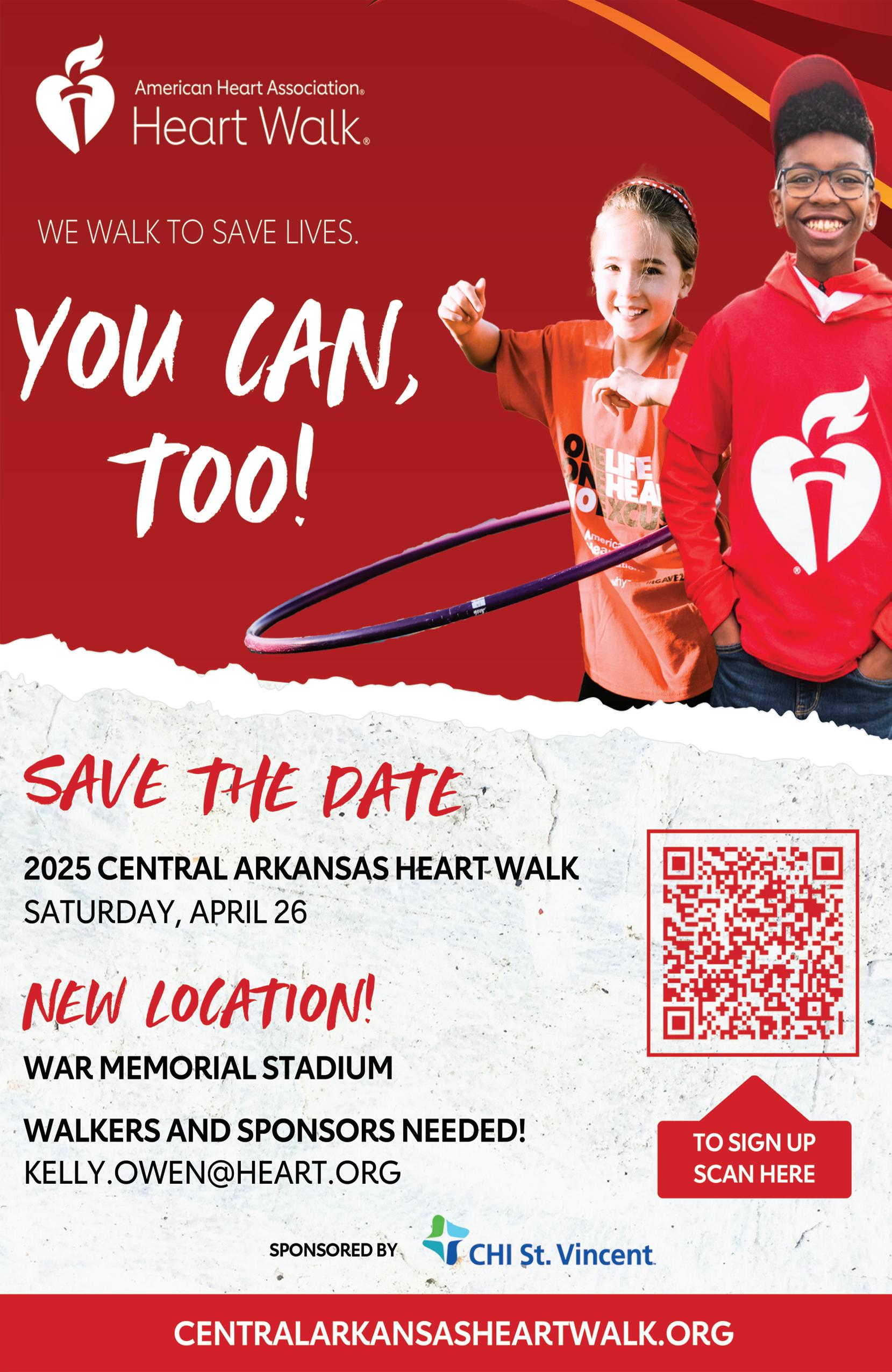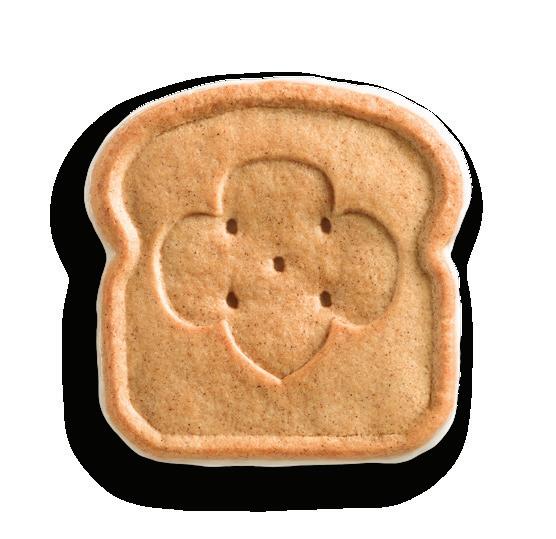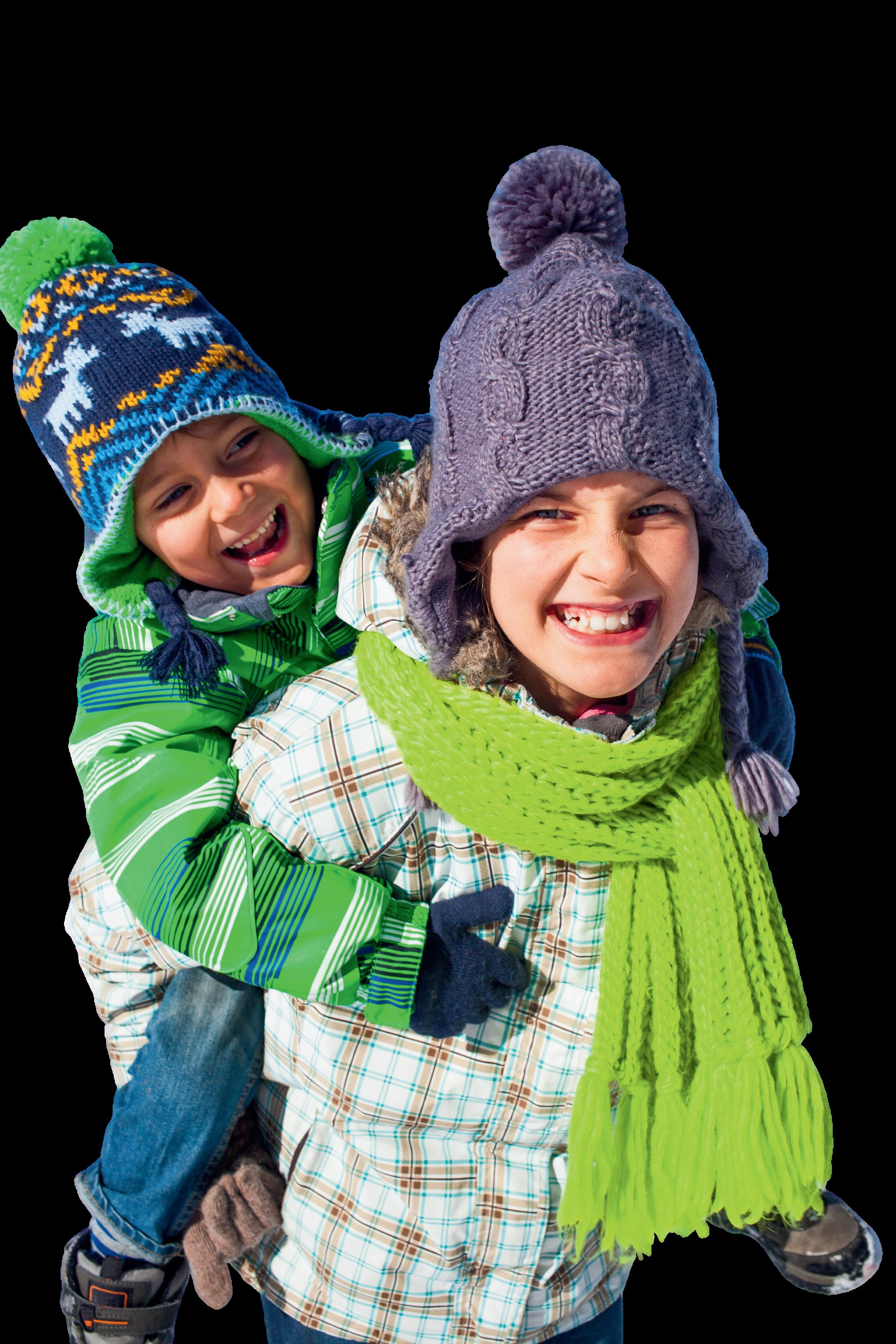
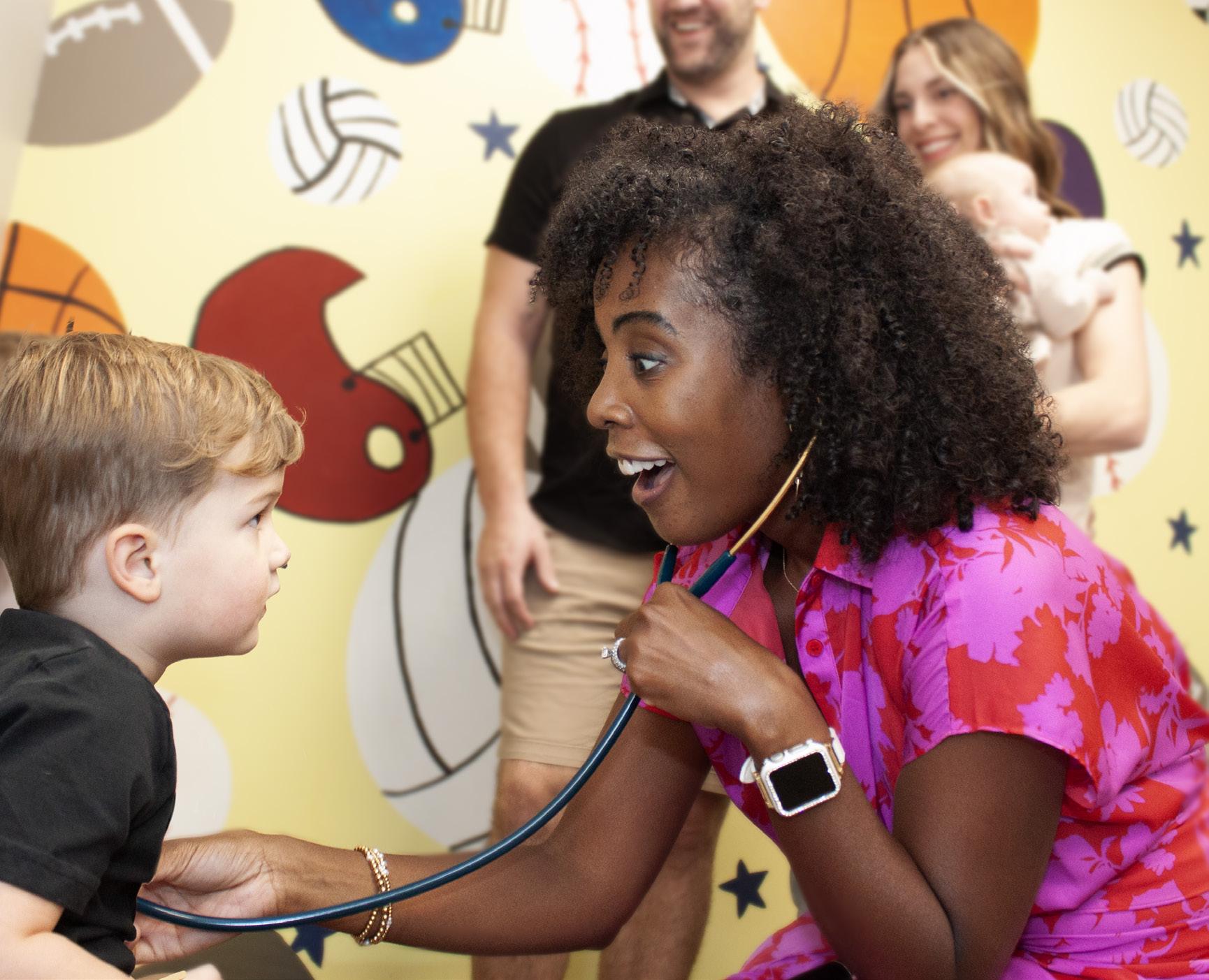











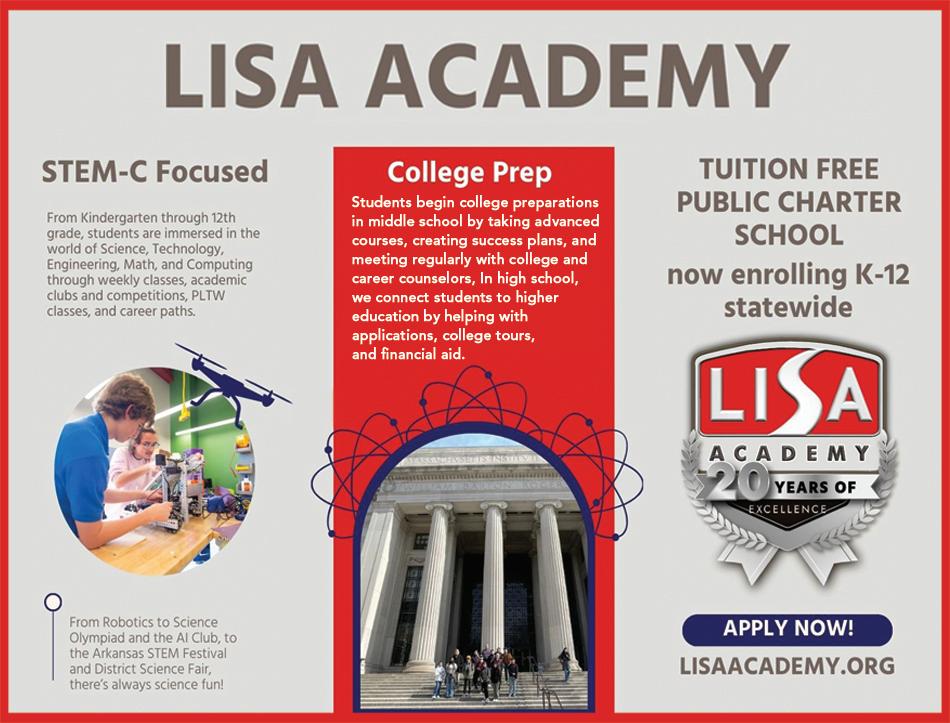





Getting ready to start school
Families help their child prepare for school from birth. Daily interactions with family and other caregivers promote learning. Talking, reading, and playing may seem simple but are critical activities that help children’s minds and behaviors develop.
If your child or grandchild is starting kindergarten in Fall 2025, it’s time to focus on their readiness for school.
Kick off 2025 with your guide to kindergarten readiness
Better Beginnings provides hands-on kindergarten readiness activities for fun family learning.
The Getting Ready for Kindergarten Calendar guides families, week-by-week, with activities and suggested reading that help children learn literacy, science, and math basics. Creative
Better Beginnings is administered by the Arkansas Department of Education. Sponsored editorial, written by
Kelli Hilburn, Better Beginnings Program Administrator
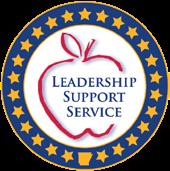
projects help them develop the fine motor control needed to hold a pencil correctly and use scissors – essential skills for kindergarten. Activities in the calendar also encourage children to develop self-help, problem-solving and social skills.
The Kindergarten Readiness Checklist helps families discover areas of development their child may need help with before starting school. All resources are free and available online for download.
We encourage families to partner with their child’s early educators to help their child start kindergarten with confidence. Looking for your early education partner?
Click the orange banner at ARBetterBeginnings.com to find Better Beginnings star-rated quality early care and education providers who help children get ready for kindergarten through age-appropriate and positive learning experiences.







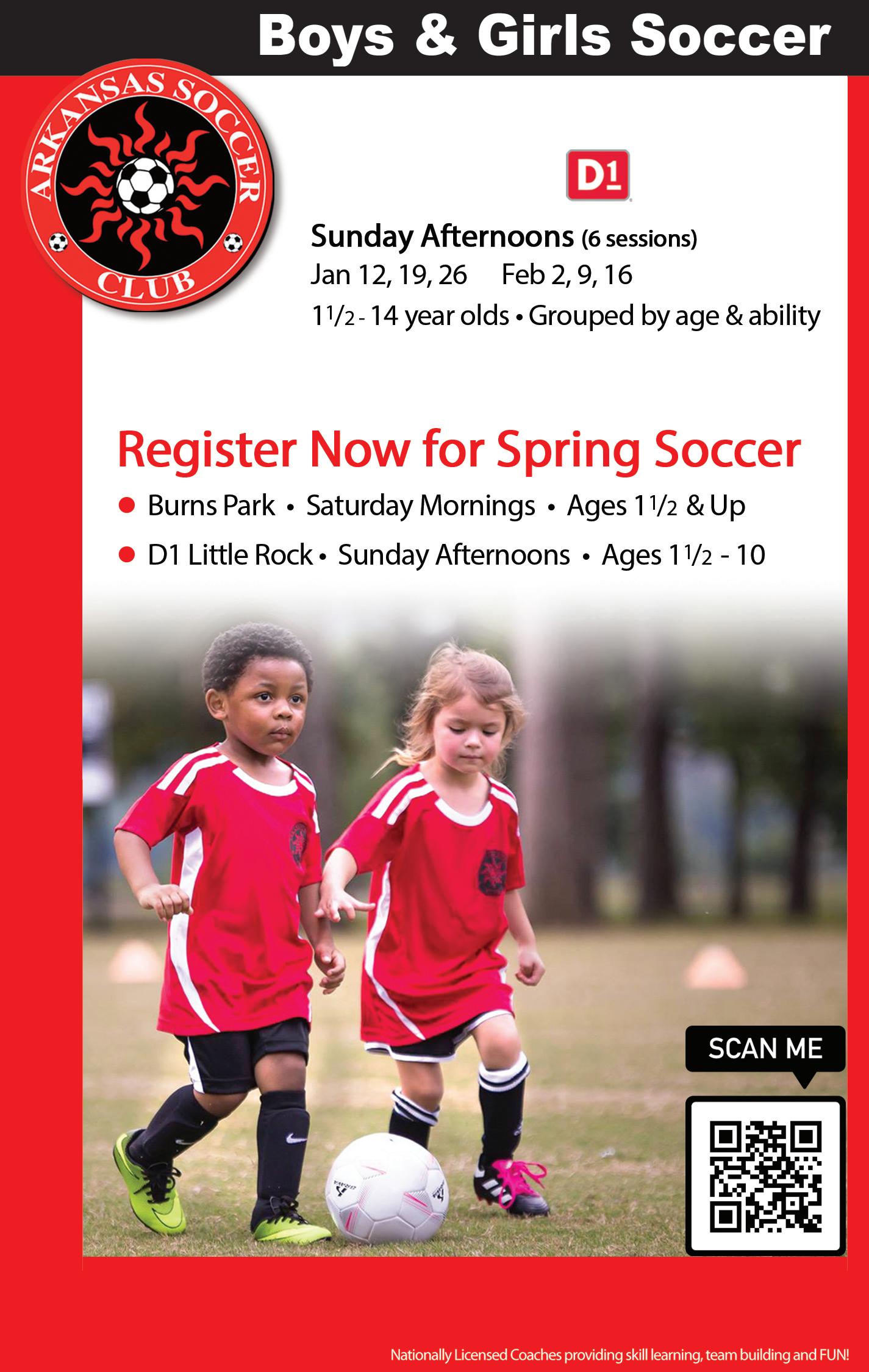




For over 77 years, Camp Aldersgate has been a cornerstone of connection and inclusion for its community. Founded in 1947 by a group of women from the Little Rock Methodist Council, the camp began on a 100-acre turkey farm. Initially created for interracial fellowship, church gatherings, and youth and senior programs, Camp Aldersgate has since grown into a unique place dedicated for individuals with special needs.
For over 77 years, Camp Aldersgate has been a cornerstone of connection and inclusion for its community. Founded in 1947 by a group of women from the Little Rock Methodist Council, the camp began on a 100-acre turkey farm. Initially created for interracial fellowship, church gatherings, and youth and senior programs, Camp Aldersgate has since grown into a unique place dedicated for individuals with special needs.
In 1971, Dr. Kelsy Caplinger organized the camp’s first medical summer program for 12 children with asthma. Today, Camp Aldersgate hosts camps serving children and young adults with a variety of medical conditions, from muscular dystrophy and diabetes to spina bifida and cardiac conditions. It also offers inclusive Kota Camps, where children of all abilities can share the experience with a friend or sibling.
In 1971, Dr. Kelsy Caplinger organized the camp’s first medical summer program for 12 children with asthma. Today, Camp Aldersgate hosts camps serving children and young adults with a variety of medical conditions, from muscular dystrophy and diabetes to spina bifida and cardiac conditions. It also offers inclusive Kota Camps, where children of all abilities can share the experience with a friend or sibling.
While summer camp remains at its heart, Camp Aldersgate provides year-round programming with spring and fall Weekend Camps, making it a hub of opportunity for families throughout the year. As one of only eight American Camp Association-accredited camps in Arkansas—and the only one specifically designed for individuals with special needs—it continues to set the standard for inclusion and excellence.
While summer camp remains at its heart, Camp Aldersgate provides year-round programming with spring and fall Weekend Camps, making it a hub of opportunity for families throughout the year. As one of only eight American Camp Association-accredited camps in Arkansas—and the only one specifically designed for individuals with special needs—it continues to set the standard for inclusion and excellence.
Beyond its rich history, Camp Aldersgate offers something increasingly rare in today’s tech-driven world: the chance to unplug. Outdoor activities like fishing, ropes courses, and exploring nature not only give kids a break from screens but also foster creativity, confidence, and social connection.
Beyond its rich history, Camp Aldersgate offers something increasingly rare in today’s tech-driven world: the chance to unplug. Outdoor activities like fishing, ropes courses, and exploring nature not only give kids a break from screens but also foster creativity, confidence, and social connection.
Kids Directory Article 2025.indd 1
Kids Directory Article 2025.indd 1
For staff, camp Respite kids

Skill-Building through A with Camp create connect? Scan more our 2000

For parents, Camp Aldersgate provides peace of mind. With experienced staff, accessible facilities, and a deep commitment to its mission, the camp offers:
For parents, Camp Aldersgate provides peace of mind. With experienced staff, accessible facilities, and a deep commitment to its mission, the camp offers:
Respite and Support: Parents and caregivers can relax knowing their kids are cared for by trained staff.
Respite and Support: Parents and caregivers can relax knowing their kids are cared for by trained staff.
Skill-Building Activities: Campers gain independence & self-confidence through adaptive activities.
Skill-Building Activities: Campers gain independence & self-confidence through adaptive activities.
A Community of Understanding: Campers are able to relate to peers with similar life experiences.
A Community of Understanding: Campers are able to relate to peers with similar life experiences.
Camp Aldersgate is more than a camp—it’s a place where campers can create lasting memories and parents can recharge. Ready to unplug and connect? Let the journey begin.
Camp Aldersgate is more than a camp—it’s a place where campers can create lasting memories and parents can recharge. Ready to unplug and connect? Let the journey begin.
Scan to learn more about our programs!
Scan to learn more about our programs!
SUMMER 2025 SCHEDULE:
Diabetes Camp: June 8-13
Muscular Dystrophy Camp: June 15-20
Kota 1 Camp: June 22-27
SUMMER 2025 SCHEDULE:
Kota 2 Camp: July 6-11
Diabetes Camp: June 8-13
Young Adult Camp: July 13-18
Muscular Dystrophy Camp: June 15-20
Kota 1 Camp: June 22-27
Spinal Disorders Camp: July 20-25
Kota 2 Camp: July 6-11
Chronic Health Conditions Camp: July 27-August 1
Young Adult Camp: July 13-18
Audiology Camp: July 27-August 1
Spinal Disorders Camp: July 20-25
Chronic Health Conditions Camp: July 27-August 1
Audiology Camp: July 27-August 1


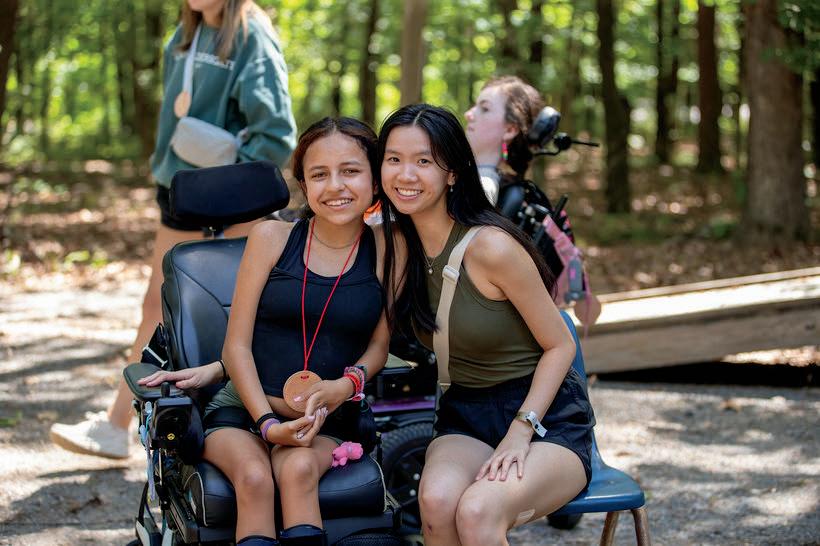

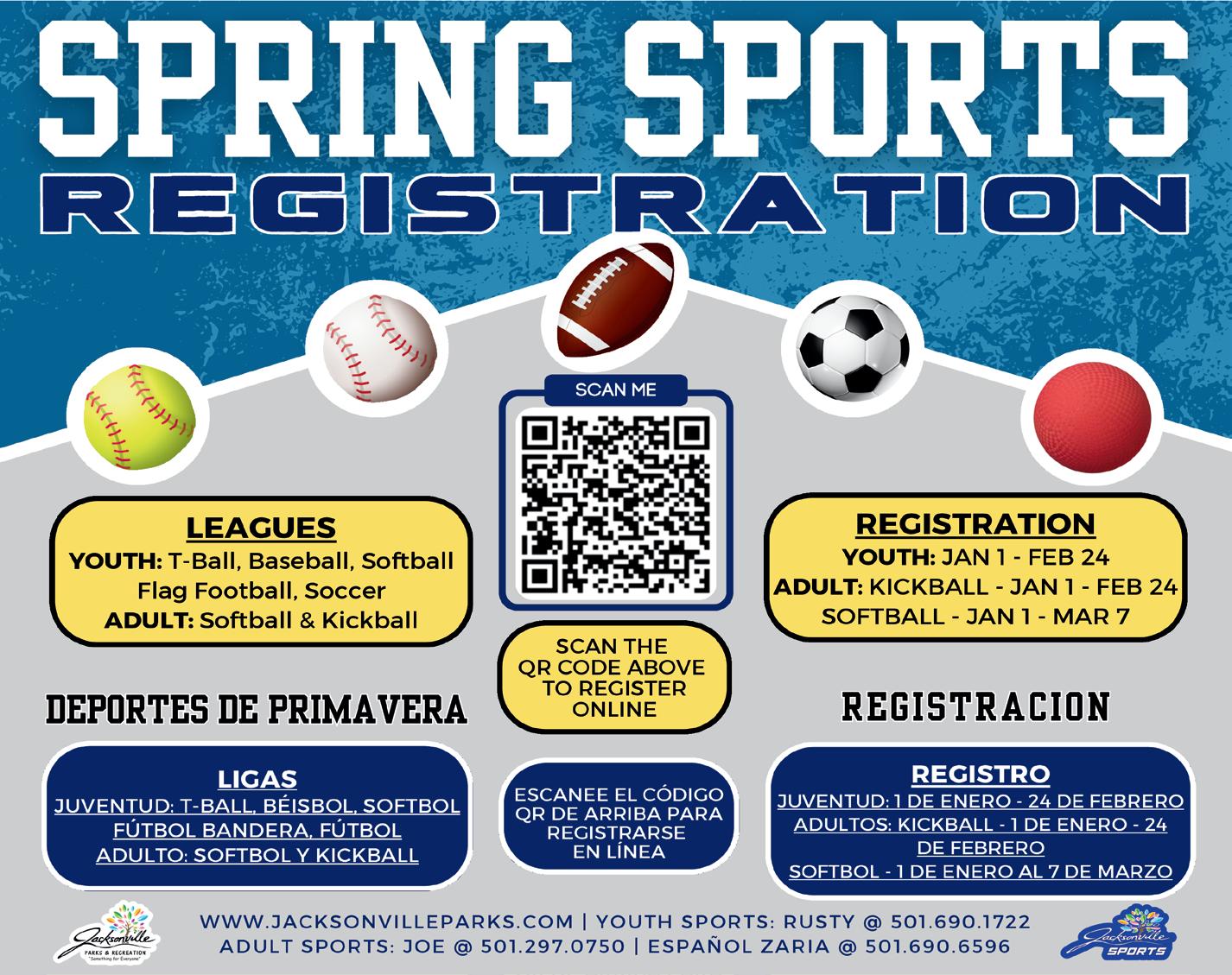



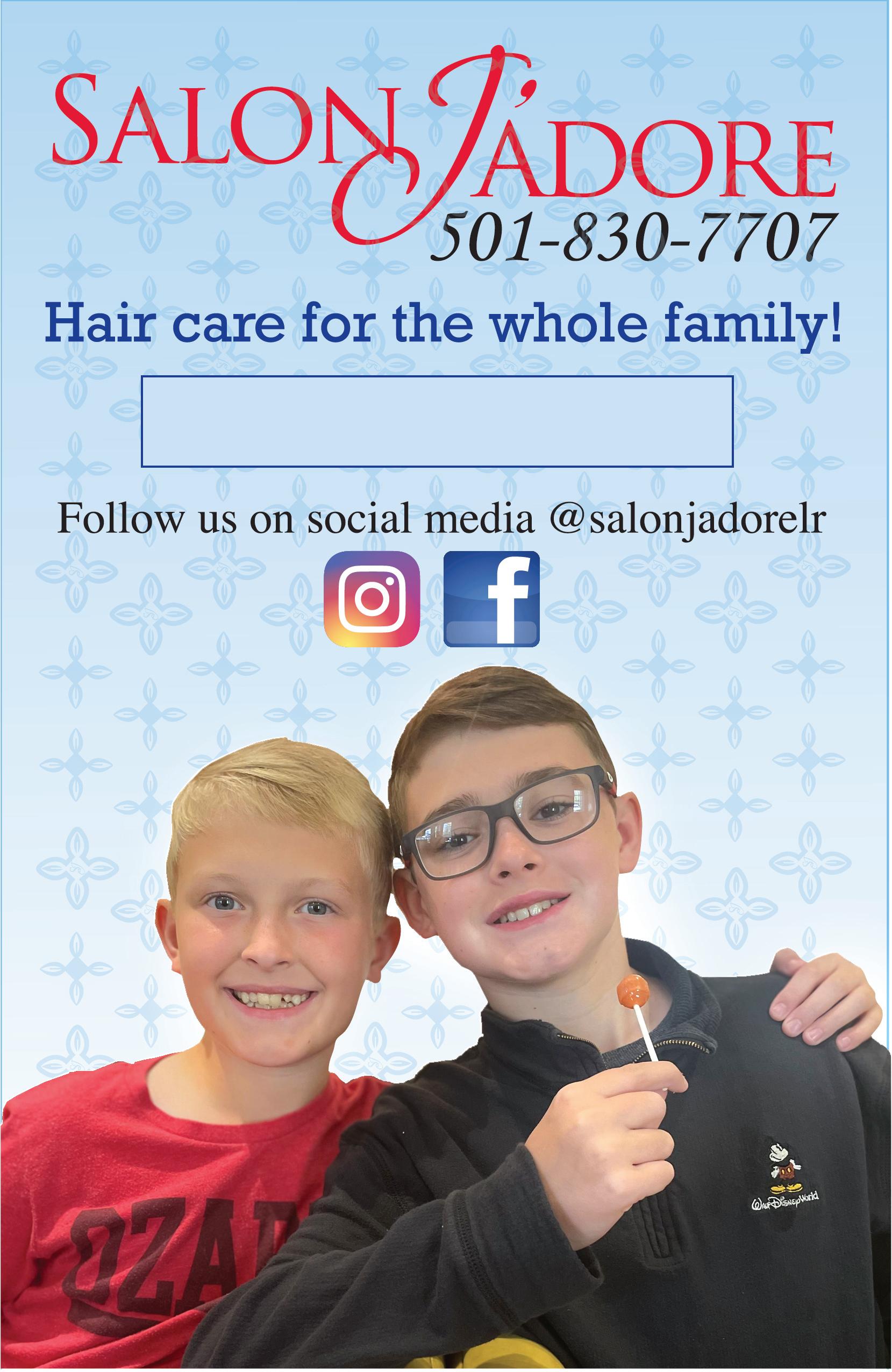



by Lisa Fischer Journalist and Certified Health Coach
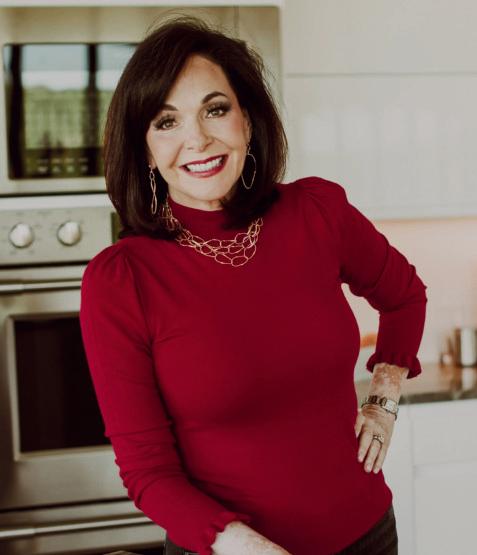
“When my health started tanking with my third child, I started looking at food dyes and eating real, whole foods. I noticed that European and U.S. ingredient labels are vastly different.”
Social media and the political messaging of the past few years have affected our psyche in many ways. Besides introducing us to a catchy TikTok dance here or there, they have awakened parents to the role of what their kids eat, how their eating influences their behavior, and, more importantly, how they navigate health and avoid chronic illness.
That was photographer May Talbert’s impetus to solve the riddle of illness with her 6-month-old son. Talbert is the mom of three boys and the wife of a pastor at Christ Community Church in Little Rock. Active children and a busy family life motivated her to keep healthy options on the table for her family. Still, more importantly, it was about mitigating disease and trying to find out why her son was sick. When her first son had “so many food allergies,” she figured she would need to be proactive about their diet to get to the bottom of it. She is thankful she found a pediatric allergist at Arkansas Children’s. He’s Dr. Robert Pesek. He and his team were able to get the initial allergies diagnosed, but as a mom, it had to go deeper than allergy testing and doctor’s visits.
She said, “In the beginning, I spent so much time just detoxing him. I used detox baths to help him through that process.” When he had a “huge reaction at 6 months of age with all-over eczema, I had to work really hard. Even Dr. Pesek was impressed with my son’s ability to reverse his allergies.” It took plenty of family involvement and getting back to nature.
She continued, “Our family’s lifestyle helped heal him. We prioritize sleep; they don’t play video games until the weekend. They play outside. I don’t use sunscreen on my kids either because of its toxic ingredients, and the sun isn’t dangerous.” Her boys are active 10, 8, and 7-year-olds.
She started noticing her health issues around seven years ago. She said, “When my health started tanking with my third child, I started looking at food dyes and eating real, whole foods. I noticed that European and U.S. ingredient labels are vastly different.” It is almost cliche now for the many travelers and those in the health space who say that when traveling to Europe, people don’t have GI distress or other immunological reactions from the foods there, including oft-inflammatory bread and wine. Is that a coincidence? Talbert doesn’t think so.
“My youngest son would be medicated if any other family raised him. But we noticed how his behavior changed when we removed food dyes, and we began adding magnesium to his diet to help calm him,” she said.

Ingredients banned by the European Union and allowed in the United States include titanium dioxide, which is found in cereals, candy, and some alcoholic beverages; BHA and BHT, which are found in some frozen foods and certain ultra-processed foods like Bugles and Jiffy Corn Muffin Mix; rBST, a product found in many American-sold dairy products; and artificial food dyes—the very dyes that Talbert says affected her child.
So, if behavior is altered by food, what else? Cancer research facility MD Anderson in Houston, Texas, says there is a link between certain foods and cancer. Clinical dietician Alyssa Tatum listed them on their website, including alcohol (a type I carcinogen) and ultra-processed foods.
So what do their kids eat?
“Tis the season to eat a bunch of cancer-causing and behaviorinterrupting foods.” She said, “Sure, they eat candy on Halloween, and birthdays are typically with a cake,” but she makes cakes with no preservatives and uses almond flour when possible. Almond flour has no gluten, and gluten can cause inflammation for many people. Then, she challenged herself and her family. “For six months now, we have been solely eating a carnivore diet, which is meat-based, and the kids eat what we put in front of them, so they eat a lot of grilled meats and fruits, and they love that. When you don’t overload them with Oreos, they realize fruit is so sweet and love it.” She said they did that to help reduce or reverse some other conditions.
For the mom, dad, or guardian thinking, " How can I do this?”
The answer is that it’s in your mindset. Talbert said, “I control the controllable, which is my home.” She said they eat popcorn on movie night (they get organic corn kernels from Whole Foods), and she packs their lunches for school. But she gets creative with “beef sticks, lots of protein, almond flour crackers instead of one with lots of unfamiliar ingredients, and she makes what the boys call ‘homemade Lunchables.’ Plus, they eat leftover burger patties, fruit, and lots of electrolytes in their water because they play sports.” Staying educated about what they are eating is very important to Talbert, who steers clear of seed oils, which have been reported to cause many health conditions. Those are highly processed oils, and Talbert prefers things that aren’t. So she cooks with butter, beef tallow, or even lard. These oils come from animals.

Interior designer and mom of three Jessica Bernard admits to using technology for her food education. She uses the Yuka app, which scans the labels at the grocery store and helps her make the best choices for her family.
Avoiding toxic ingredients is priority number one for her, and the app tells her if something is good, bad, or has hazardous ingredients. She said, “It makes you think about buying certain items. I left the General Mills cereals and went to Cascade Farms for healthier options.” She added, “Reading labels helps a lot, and that app helps. If you can’t pronounce it, it’s probably not good. I use the app for everything, and nobody sponsors it.”
Bernard says her mother began influencing her to make the right food choices when she was younger. Then that segued to eating right when she was pregnant with her first child. Her kids include a 13-year-old stepson, an 11-year-old son, and a one-year-old daughter. Their food choices are what she and her husband, André, like to eat, too. She said, “We always eat organic free-range eggs and some form of protein, mainly bacon, for breakfast.” She uses her design creativity for her pancakes, using organic oat flour and adding banana and a little syrup to sweeten them. She is insistent. The baby “gets no added sugars.” Thankfully, baby girl “likes vegetables including peas, and the boys like green beans and broccoli.” Their dinner is with organic meats, produce, and a healthy carb. Tonight, “I am cooking a beef stew with vegetables.” She said they hardly eat out and make eating at home a priority.
Juice, once the nectar of the gods, is now maligned among moms on social media. For the Bernard family, “There is no juice for the baby, and with the boys, we limit the juices and have them drink water. Sometimes they want juice, so I get organic pineapple juice and freshly squeezed tangerine juice from Fresh Market.”
It’s more challenging for the older children. But Bernard finds herself teaching her kids. “I tell the big boys the dangers behind certain foods, and I talk to them about many harmful things without trying to scare them. I don’t frighten them about kids who get cancer, but you have to be mindful about what you put in your body. We use the car analogy; we wouldn’t put bad gas in a good car.”
Dr. Amy Beard is both a dietician and a medical doctor who practices functional medicine (getting to the root cause of the illness). She is often asked what to feed kids, which sounds pretty simple. “I tell them to start feeding their kids real food, which means foods in their natural form. I do not hate any food group but prefer eating things like fruits and vegetables seasonally.” She said she prefers children eating whole fruit instead of fruit juice.
The challenge is often with snacks. What does the doctor recommend for that? She said, “Fruits in season, whether berries, apples, oranges, are good options. I found that a great way to get them to increase their vegetable intake is to make very nutritious dips. Maybe it’s hummus or yogurt-based dips, and I often find that Pinterest has a lot of great recipes.”
She does like knowing families are eating grass-fed beef when available or chicken that is pasture-raised. She has been known to say, “You are what you eat EATS.” She is a proponent of local dairy and eggs if they are well tolerated.
“I’m a big fan of making my trail mix for an easy snack. That way, you can put in whatever your child likes, whether nuts or dried berries, and you could even throw in a few good quality dark chocolate chips in there just for a special treat.”
All parents will admit that finding the right eating program for their family is challenging but worth the fight. Start by eating real food and you should see significant changes, including saving money and maybe even making trips to the doctor.
Amy Beard, MD, IFMCP



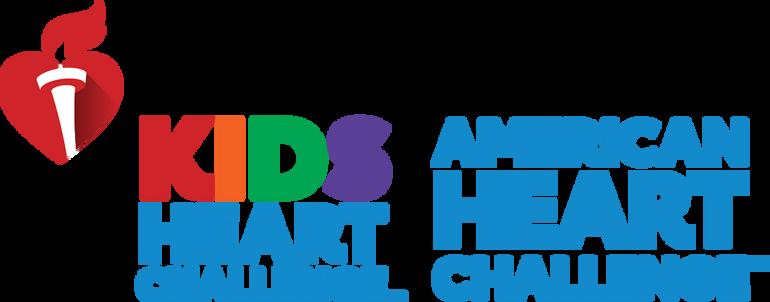
Starting with the graduating class of 2026-2027, Arkansas high school students will need to complete 75 hours of community service to graduate, as mandated by Arkansas Code Annotated §6-16-1901 This requirement, part of the LEARNS Act, aims to foster a sense of civic duty and community involvement among students.
One innovative way students can fulfill these hours is through the American Heart Association’s American Heart Challenge. This program not only provides a platform for students to earn community service hours but also equip them with lifesaving skills and the opportunity to contribute to a significant cause.
Students can earn up to 10 hours per year by completing Finn’s Mission online, a component of the American Heart Challenge. This mission teaches Hands-Only CPR (HOCPR), a crucial skill that can save lives in emergencies By learning and promoting HOCPR, students become advocates for heart health in their communities, spreading awareness about the importance of immediate response during cardiac events
Participation in these challenges is often spearheaded by student organizations such as BETA, NHS, and Student Council. These groups play a pivotal role in promoting the programs on campus, encouraging their peers to get involved Beyond the immediate benefit of fulfilling community service requirements, juniors and seniors who participate are also eligible to apply for scholarships, adding an extra incentive
The overarching goal of these initiatives is to build a network of lifesavers within local communities. By empowering students with knowledge and skills, the American Heart Association aims to create a ripple effect of awareness and preparedness. Each student trained in HOCPR represents a potential lifesaver, ready to make a difference in critical moments
Through the LEARNS Act and the American Heart Association’s challenges, Arkansas students are not only meeting graduation requirements but also becoming vital contributors to their communities, one heartbeat at a time.
For more information, contact Tracy Shephard at Tracy.Shephard@heart.org
